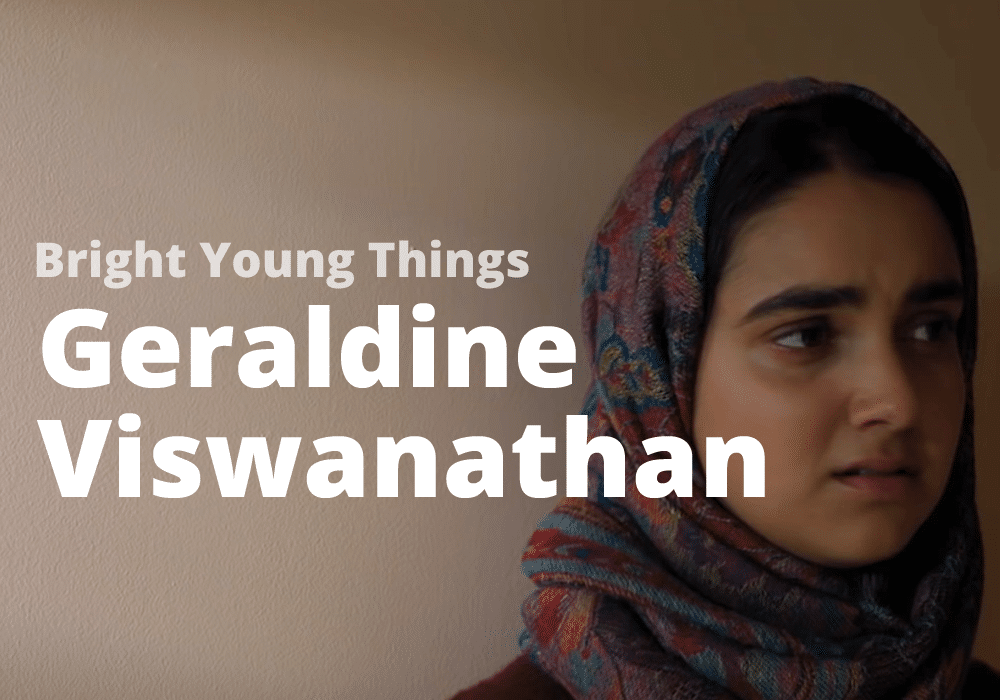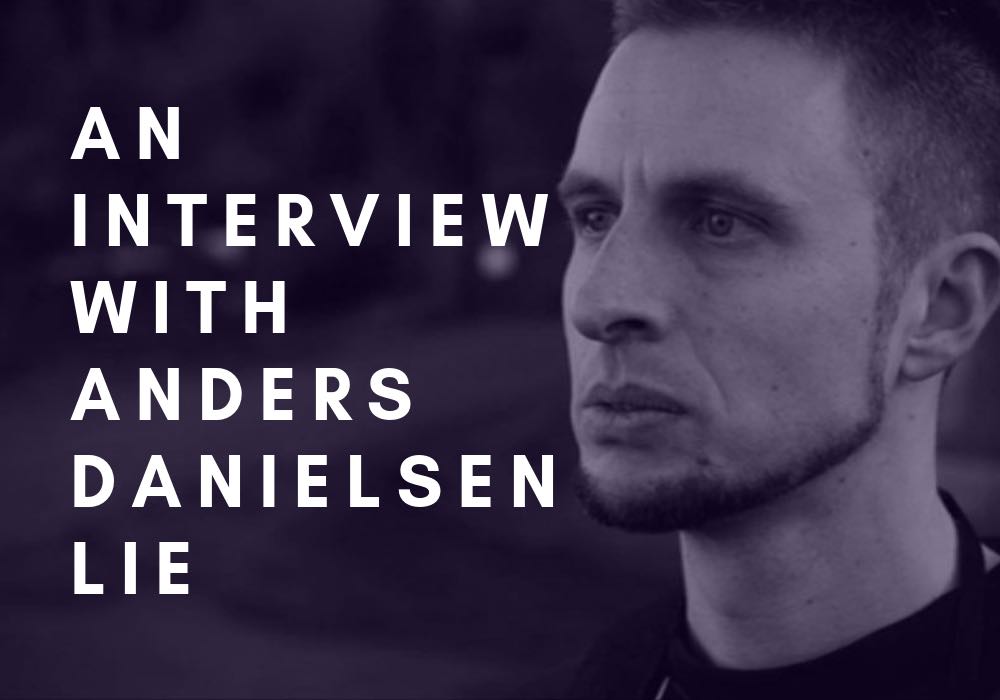Aldis Hodge on playing Jim Brown with a cool, level head in One Night in Miami…, exploring the character through rehearsals, and responding in the moment. We also talked to Kingsley Ben-Adir about his work on the film here.
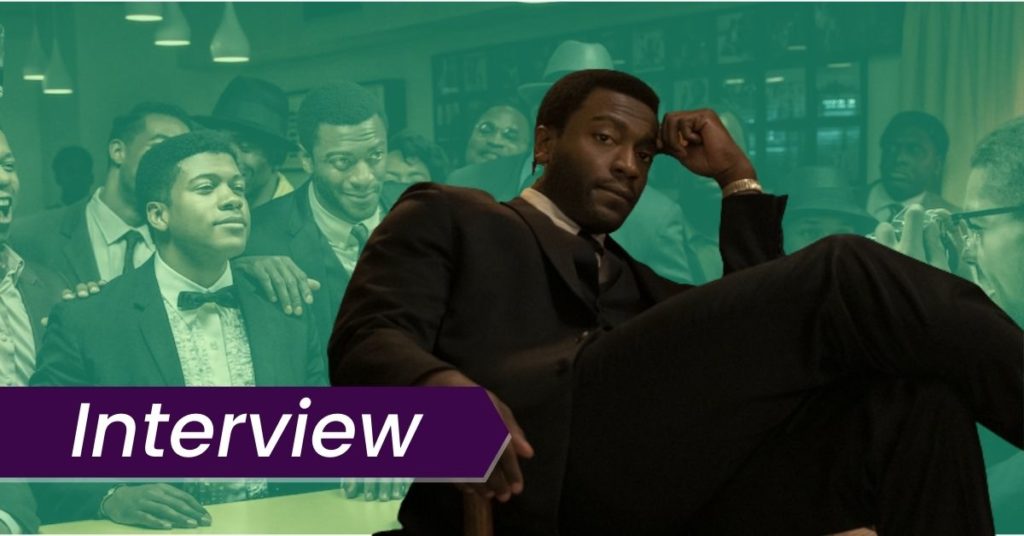
Discover one film you didn’t know you needed:
Not in the zeitgeist. Not pushed by streamers.
But still easy to find — and worth sitting with.
And a guide to help you do just that.
As Jim Brown, the football-star-turned-actor, and one of the four men hanging out on that fateful night in Miami, Aldis Hodge has one of the most difficult and least showy roles in One Night in Miami. The young upstart Cassius Clay (Eli Goree) has just won a big match, and Malcolm X (Kingsley Ben-Adir) is trying to convert him to Islam. Clay is the impressionable one that they all end up arguing about, regarding how best to serve the Black community.
Malcolm’s lengthy speeches and proclamations drive the action; singer Sam Cooke (Leslie Odom Jr.), whose activism comes through in his business acumen and economic support of Black artists, is Malcolm’s antagonist. And Brown is quietly listening through most of the night, hearing what Malcolm and Sam can’t hear each other say, and keeping his cool. By the end of the night, he’s the one that makes sure they’re speaking the same language and that they understand they’re both on the same side. After taking a moment to himself in the bathroom to collect his thoughts, he confronts Malcolm, explaining to him Sam’s point of view and helping the men see eye to eye, even if they don’t quite agree.
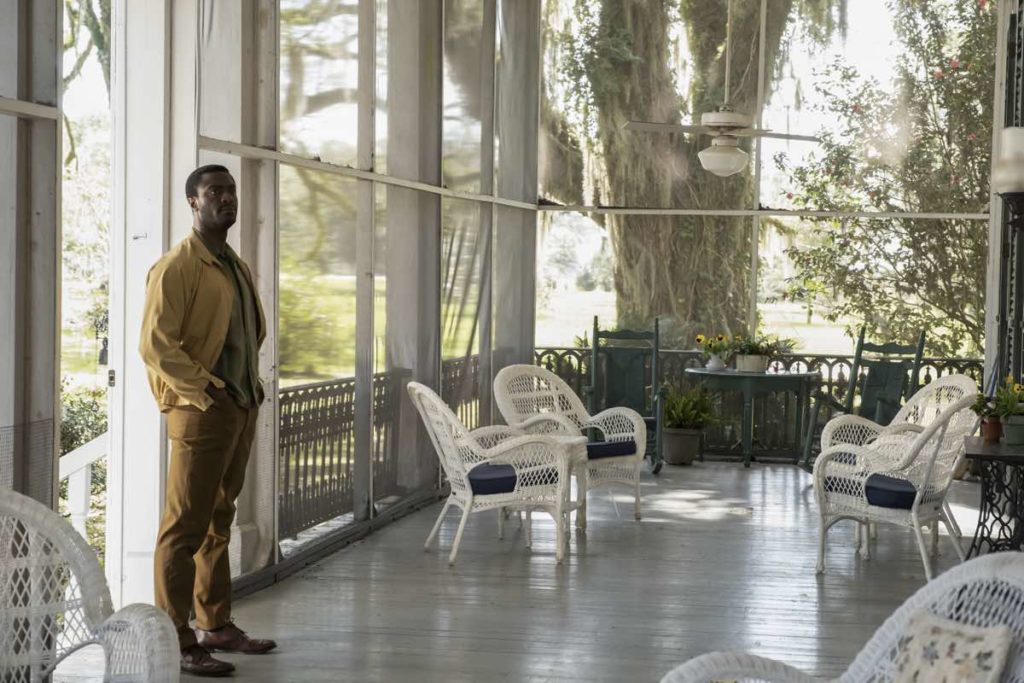
Just because Brown holds his tongue and keeps his cool, doesn’t mean that Hodge is doing nothing nor that Brown is feeling nothing. He’s quietly seething with checked anger, listening and reacting to everything that’s being said. Hodge is such a skillful and magnetic performer that I regularly found myself watching him even when the action revolved around the other characters. Hodge is just that good. From the moment we meet Brown, when he visits a local white leader and looks suspicious and wary throughout their conversation, Hodge holds our attention just through how he listens and his body reacts. He speaks very little in the scene, smiling affably and remaining polite, but you can see his discomfit in the way his body refuses to relax, how every possible microaggression directed at him makes him start just a little.
Hodge has been working for almost two decades, and you’ve probably seen his work before, but may not realise it was him. He has a tendency to blend into his characters. But when you realise he played Voodoo Tatum on Friday Night Lights, you’ll instantly remember his brooding, tall presence and deep drawl. In 2019, he gave one of the very best performances of the year alongside Alfre Woodard in Clemency, matching her in skill, precision, and screen presence at every turn. Like Jim Brown, his character in Clemency was affable but with controlled, justifiable anger. In One Night in Miami, he gets to show off his charm and his handsomeness in an excellent suit. And in a film that’s all about the performances, he still stands out.
Last week, I talked with Hodge via Zoom about how he prepared to play Jim Brown and how he approached some of Jim’s crucial scenes in the film.
Seventh Row (7R): How did you start to prepare your character, especially since you’re playing a real person? How important was it to hew closely to the physicality of the real Jim Brown?
Aldis Hodge: I was in the gym, working out. I had to put on a little bit more size for him. But most of the research for me was in the mentality: who he was and where he was at at the time.
I started looking up a bunch of interviews, and trying to dig into speeches where he was talking about cultural issues and economics. I had a lot of fun with it because I was really shown a different version of Jim Brown that I hadn’t seen in the media.
We know the sports, and we know the film, and we know about his activism, but I don’t think that enough light is shone upon his activism and what he does in the community. So to be able to discover that was really a great treat for me.
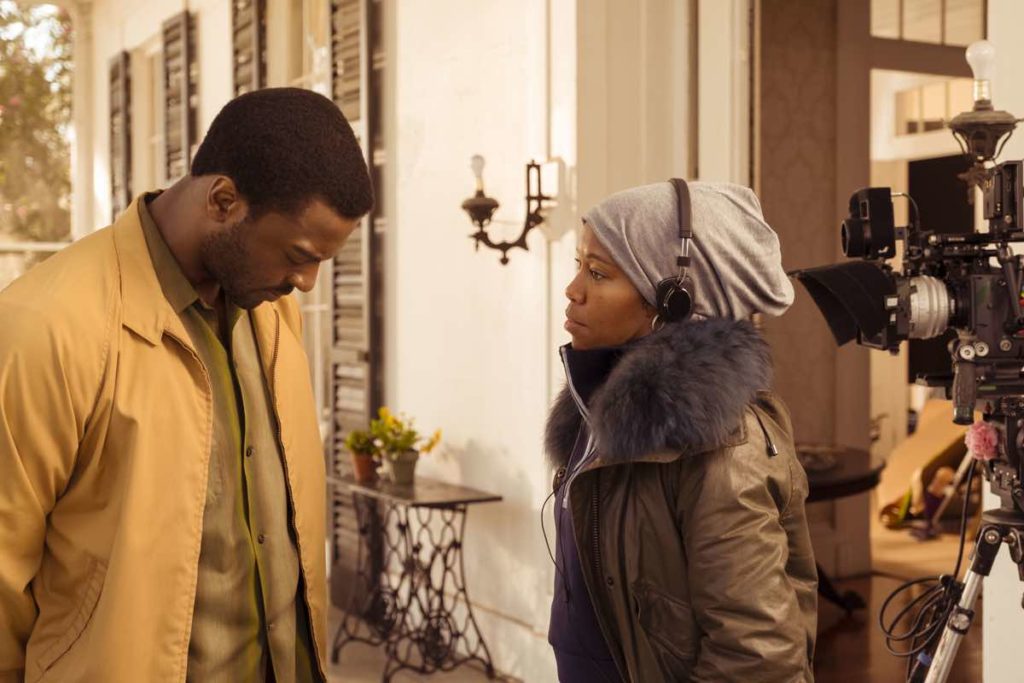
7R: Your research material would have mostly been of Jim Brown as a public figure, but this film brings us behind closed doors to observe him in private, around his friends. How did you think about who he would have been outside of his public face?
Aldis Hodge: The night really did happen, but everything in the conversation is sort of [an imagined version] of what it would have been. What Kemp [Powers, who wrote the play and the screenplay] did brilliantly is take the essence of these men, and take what we know of these men, and boil it down to their personalities in their speech.
I feel like what we see of each of them is as honest as we can be, which I feel is a great feat to accomplish because you are talking about a really private conversation. What is their personality when they’re behind closed doors? We know that, sometimes, people put on a façade.
But that’s why, when it came to looking up research on Jim Brown, I was looking for where I saw him being raw. What I found out is he was always raw. Just like with Muhammad Ali, we see him being completely fearless all the time: he is who he is. Malcolm X is out there, he is who he is, he’s not hiding. When it came to doing the research on Jim Brown, the interviews and the speeches, he was who he was. He wasn’t hiding. All four of them were fearless.
7R: There’s an interesting scene in the film where you are by yourself in the hotel bathroom. How did you think about how to play that scene when he’s alone versus when he’s in a room with the other men?
Aldis Hodge: I remember Regina [King] talked to me about that scene, going into the bathroom and what it really meant, what I was contemplating while I was in there. We’re in the middle of a heated discussion between Malcolm and Sam at that point, and Jim takes an exit, because he knows it’s getting hot.
We find him in a transitional period of his life, career-wise, from football to film. It’s not for the materialistic element of it all or the shallow element of the thing; it’s a business move. As [the characters] are contemplating what we are supposed to be doing for our culture, I think his moment in the bathroom, he’s really trying to understand what his place is, and what he’s supposed to be doing for his culture. After that, he has a very specific conversation with Malcolm to help [Malcolm] understand where Sam [Cooke] is at.
I think that’s another part of it: him playing over in his head what is his responsibility to his brothers, which is to help them figure out that they are all trying to be on the same page, but they’re reading different words. It’s like, nah, we’re in this together. Let me help you understand one another.
7R: He has these frustrations, but he does keep his cool. How did you think about how to stay contained?
Aldis Hodge: It was natural. I liked watching him, and that’s the fun about playing him is that he gets to keep his cool.
My favourite interview with him, he’s on the Dick Cavett show, and he’s debating Lester Maddox about segregation. Lester is the governor of Georgia at the time, a very proud racist, and he doesn’t shy away from that. He’s getting very irate and belligerent. Jim is keeping his cool. He’s just talking to him. He’s chilling, you know. And then Lester is throwing all this vitriol at him, cutting him off, and trying to berate him.
Jim says, “I notice you brought your security with you.” Lester’s like, “I didn’t do that ….” And Jim is saying I know you brought them for me, basically. “You know I have a reputation.” The way he said it was just so smooth. It was just one of those shallow digs where it’s like, “I see the security, that’s cool, but I’d still whoop that ass. You know who I am. I’m Jim Brown. You don’t scare me.”
The fact that he was just so in control through that thing was awesome, and it really informed every bit of how I felt about any conflict or any sort of miscommunication going forward. How would he handle this? I felt like he would handle it with a cool, level head.
7R: That scene with Malcolm X at the end where you have this big conversation is a key moment for your character. What was the process for preparing for that scene?
Aldis Hodge: The process really was just trying to figure out what the right tone was. Kingsley [Ben-Adir, who plays Malcolm X] and I discovered that through a couple of rehearsals. At first, we thought that it was going to be a bit more energetic — not energetic, but aggressive — than it was.
But when we played it out, it became less of an argument and a disagreement, and more of a sympathizing conversation to understand each other. We asked Regina what she thought of it, and she said, “It’s beautiful the way it is.” So we thought, alright, we won’t change nothing; we’ll just leave it.
There was more to teach in how they dealt with one another than trying to be big and trying to force something. It was about how am I going to deal with you, when I know we have disagreements on something? It set a good example for how to deal with differences.
7R: How much rehearsal did you do for the film?
Aldis Hodge: [laughs] Very little. Kingsley was the last person cast, and he was cast like two weeks before we started shooting. He was cast in December, and we started shooting in January.
We would have to sneak time away for rehearsal or stay at the end of the day. We chose to stay at the end of the day, to sit there and discuss what was going on for the next day.
Regina was there with us. She had the most to do, but she was sitting there giving up her free time so she could stay and talk with us. Rehearsal was non-existent, but we made it work because we came ready.
7R: How did you adjust your performance in collaboration with the other actors?
Aldis Hodge: My process, just individually, is the same process I’ve had for my whole career. I’m going to respond to you. I’m gonna see how you get down, and I’m gonna respond to you. I don’t really rehearse something to the point of… I don’t get in a rhythm where I can’t change it up. No rehearsal is sort of in my nature. I’m good with it.
Every take, there’s going to be, and probably should be, something a little bit different. It shouldn’t be a mechanical performance where you say something just as it is. You open a world [when you] leave yourself open to respond by reacting. I’m gonna see what you do, and that’s going to draw a different reaction from me.
You could be missing out on opportunities to watch great films and performances (like Aldis Hodge’s in One Night in Miami) at virtual cinemas, VOD, and festivals.
Subscribe to the Seventh Row newsletter to stay in the know.
Subscribers to our newsletter get an email every Friday which details great new streaming options in Canada, the US, and the UK.
Click here to subscribe to the Seventh Row newsletter.
